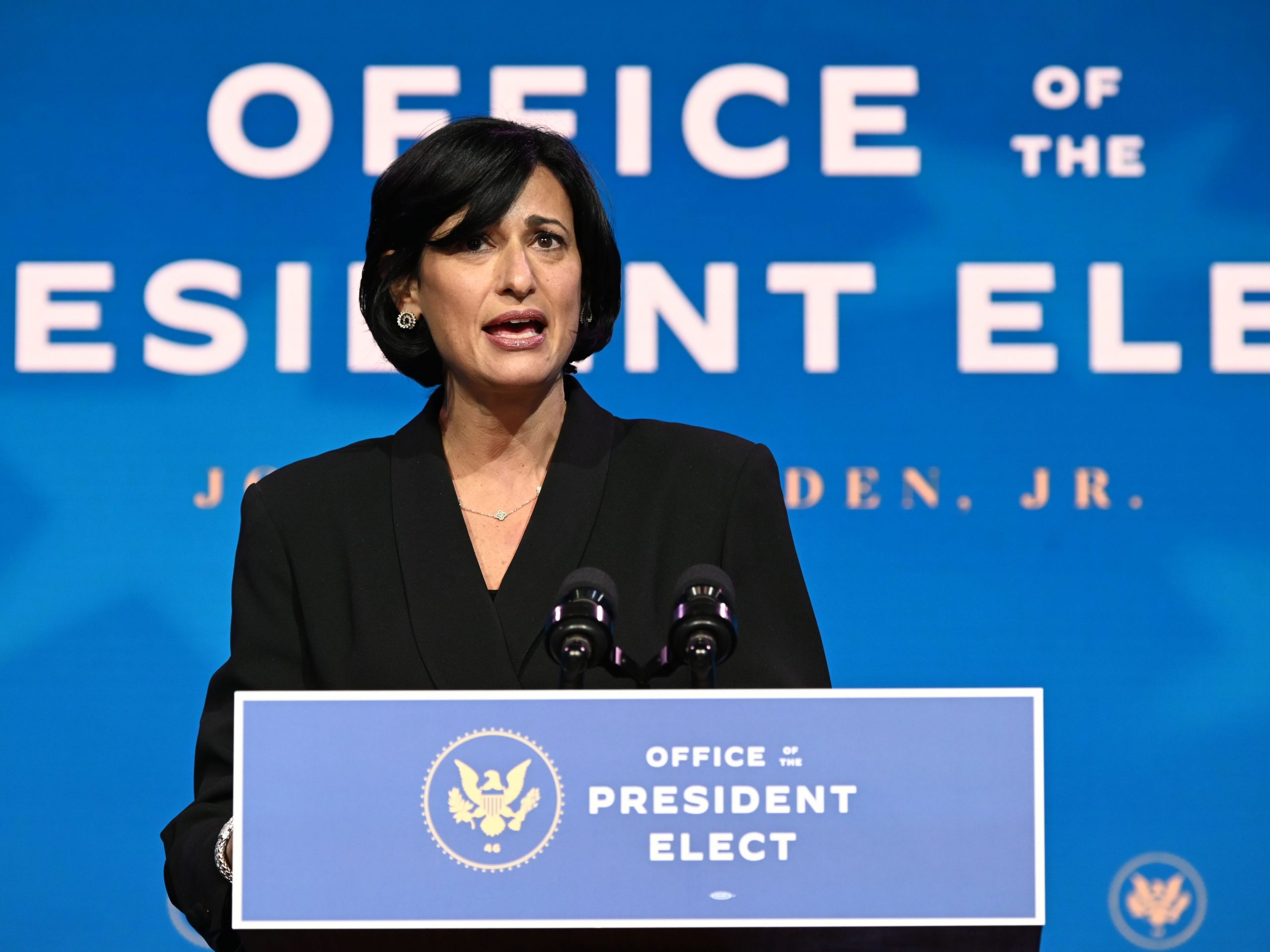
Jim Watson/AFP via Getty Images
- It is a mistake for states to lift mask-wearing mandates, the director of the CDC said Sunday.
- Iowa lifted compulsory mask-wearing in public on February 5, and Montana did the same Friday.
- Relaxing rules while virus variants circulate could put the US in a “difficult spot,” Dr. Rochelle Walensky said.
- Visit the Business section of Insider for more stories.
The director of the Centers for Disease Control and Prevention (CDC) said Sunday it was a mistake for states to lift mask-wearing requirements, after Montana and Iowa lifted theirs.
Dr. Rochelle Walensky told Face the Nation that mask mandates should only be lifted when kids were safely back at school and communities were back to “some normal functioning.”
Lifting mask mandates while more infectious coronavirus variants were circulating could put the US in a bad spot, she said.
Iowa governor Kim Reynolds lifted compulsory mask-wearing in public on February 5, and Montana governor Greg Gianforte terminated the state’s mask mandate Friday.
A CDC study has shown that putting on a cloth mask over a surgical one could reduce COVID-19 exposure by 96.4%.
Walensky said that there were still 100,000 cases new each day in the US - two and a half times the number of cases in the summer - and between 1,500 and 3,500 daily deaths.
Michael Osterholm, an epidemiologist who advised President Joe Biden's transition team on the COVID-19 pandemic, warned February 1 of a "surge" of coronavirus cases in the US because of more infectious coronavirus variants, like B.1.1.7, the variant first found in the UK, which is estimated to be 30-50% more contagious than the original virus.
There are more than 1,000 confirmed B.1.1.7 cases in 39 states, and about 4% of infections in the US are from B.1.1.7, Walensky said. The CDC predicted in January that the variant would become the most common coronavirus in the US by the end of March.
Walensky said that normal mitigation strategies - such as mask-wearing - work against the variant
If these strategies were relaxed with more transmissible variants out there, the US could be in a "much more difficult spot," she said.
"Now is the time to not let up our guard. Now is the time to double down," Walensky added.
